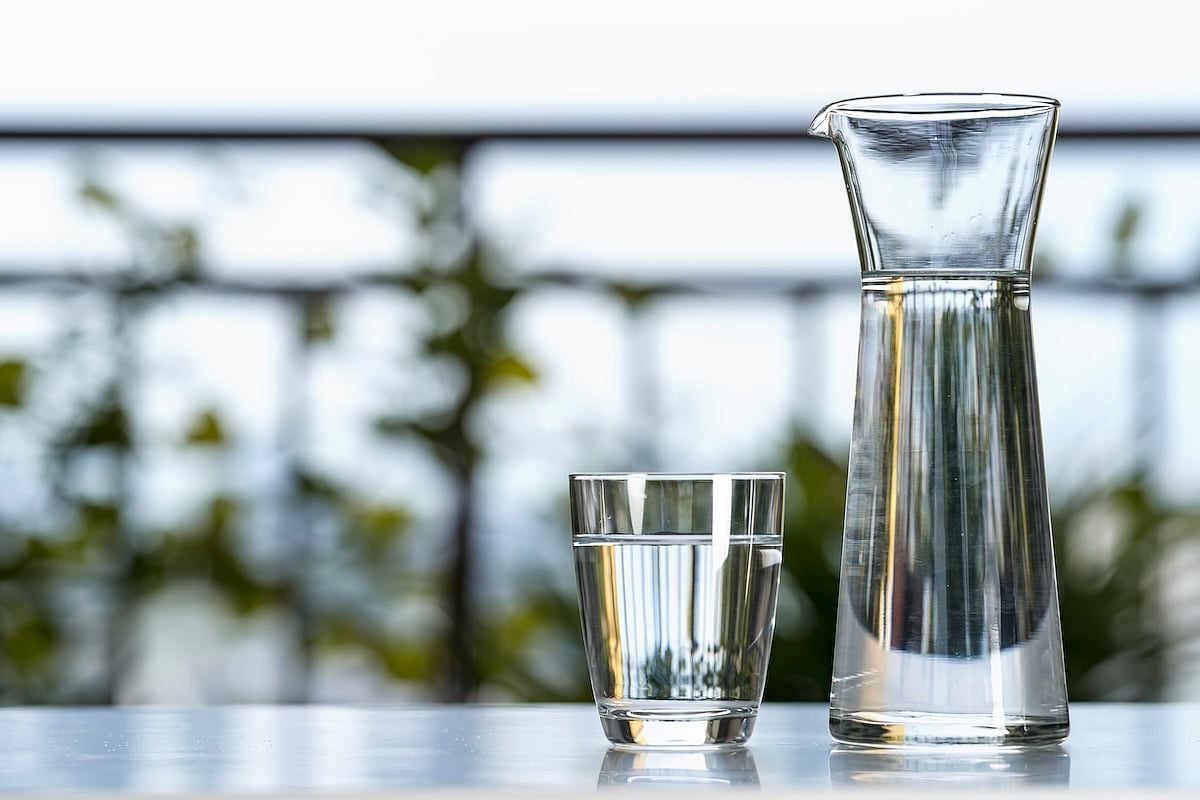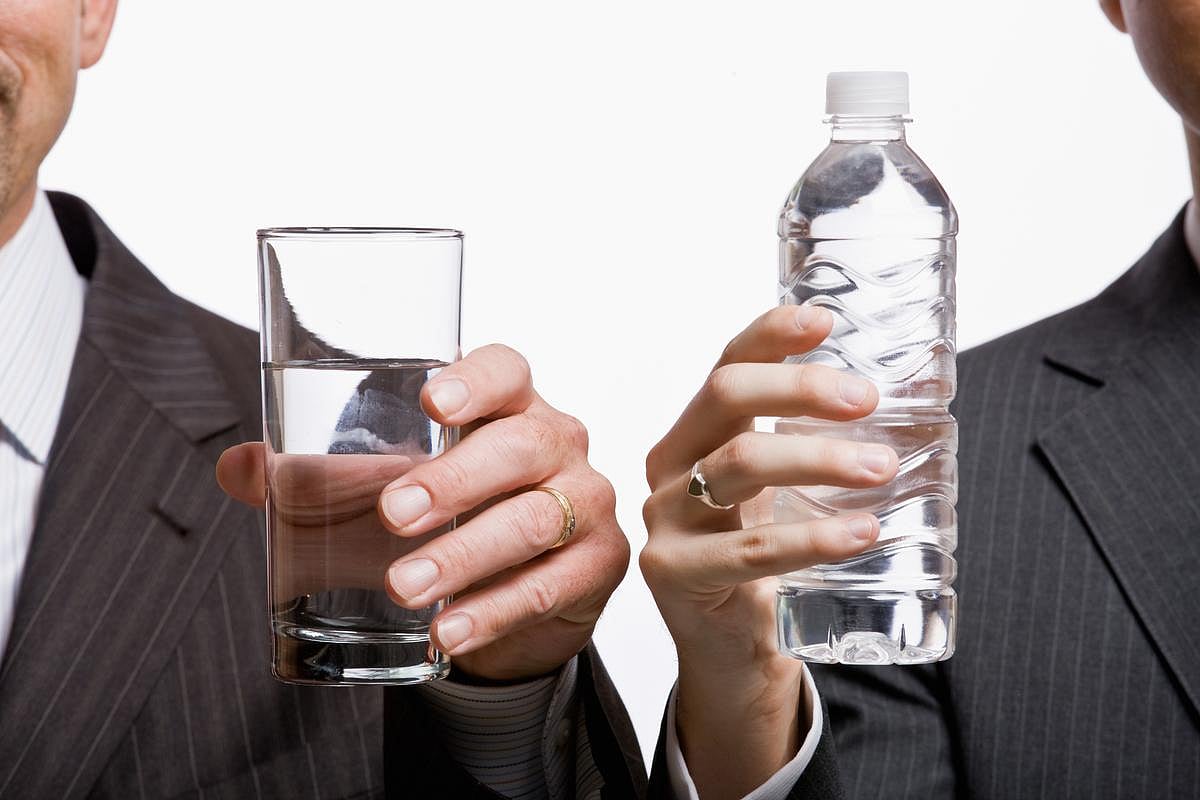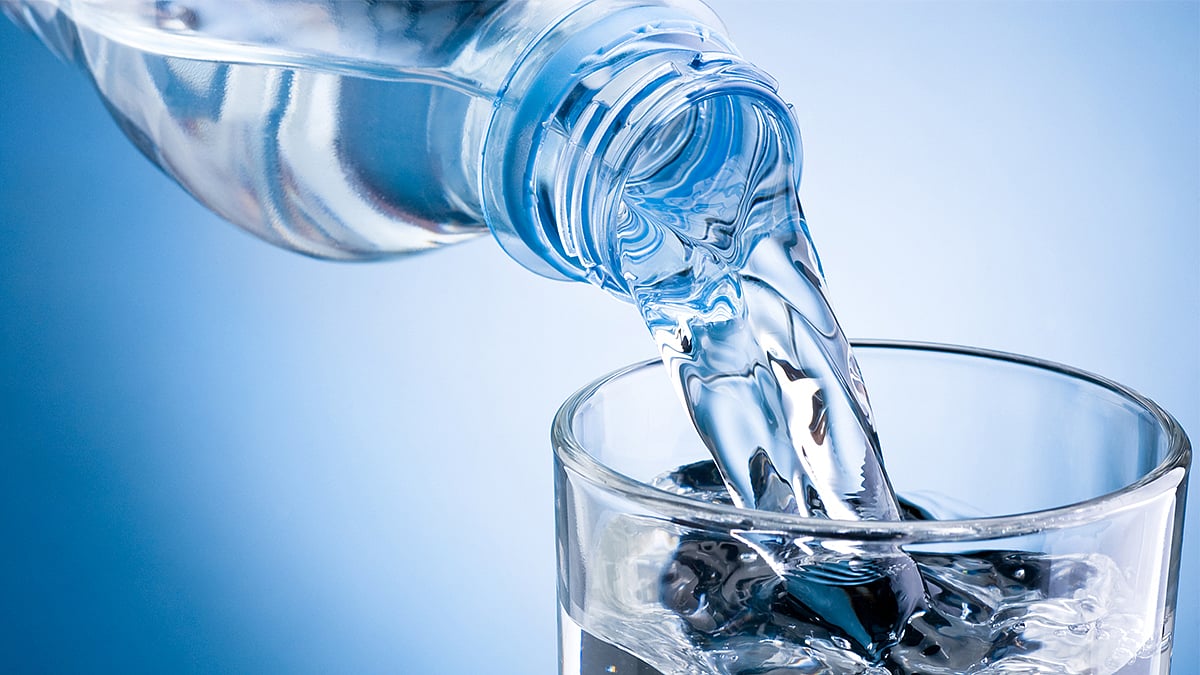Get Healthy!
Results for search "Water Consumption".
30 Jan
Hidden Salt in Tap Water May Raise Blood Pressure
A new study links higher salt levels in tap water to increased blood pressure and a greater risk of hypertension.
Health News Results - 16
People whose drinking water contains more salt have an increased risk of high blood pressure, a new evidence review says.
Particularly in coastal regions, salt in drinking water could be an overlooked contributor to elevated blood pressure, researchers reported recently in the j...
- Dennis Thompson HealthDay Reporter
- |
- January 30, 2026
- |
- Full Page
Alkaline. Electrolyte. Flavored. Walk down the beverage aisle and you’ll find all kinds of waters promising extra health perks. But are these fancy waters really better for you?
Not really, Tufts University experts say.
“There's no physiological basis that there's some metabolic benefit to these specialty waters over just regular, plain old water,” said
President Donald Trump signed an order this week removing limits on how much water can come out of showerheads.
He said the change will help Americans enjoy better showers and joked it would “make America’s showers great again,” The Washington Post reported.
Just one day later, the Senate voted 53-44 to cancel a planned energy-saving rule for gas tan...
- HealthDay Reporter
- I. Edwards
- |
- April 11, 2025
- |
- Full Page
U.S. Health Secretary Robert F. Kennedy Jr. says he will tell the U.S. Centers for Disease Control and Prevention (CDC) to stop recommending fluoride in drinking water across the country.
He also announced plans to form a special task force to focus on health risks of fluoride.
Kennedy made the comments Monday du...
- HealthDay Reporter
- I. Edwards
- |
- April 8, 2025
- |
- Full Page
Utah may become the first state in the U.S. to ban fluoride in public water statewide, a move that would override local decisions on whether to add the cavity-fighting mineral to drinking water.
The bill now awaits the signature of Gov. Spencer Cox, who has not said whether he will approve the measure, The Associated Press reported.
...
- HealthDay Reporter
- India Edwards
- |
- February 26, 2025
- |
- Full Page
Got milk? It turns out, plain cow’s milk, water and a bit of veggie juice are still the best drink choices for kids and teens.
That's the consensus of experts who recently issued healthy beverage recommendations for kids and teens aged 5 to 18.
The expert panel -- convened by Healthy Eating Re...
- HealthDay Reporter
- India Edwards
- |
- February 21, 2025
- |
- Full Page
Chalk up a partial win for health influencers who tout the slimming benefits of sparkling waters.
New research out of Japan affirms that carbonated water may, indeed, promote weight loss by lowering blood sugar levels, allowing cells to burn fat between meals for energy more efficiently.
But don't buy a smaller wardrobe just yet. The findings suggest that any benefit is small. ...
- HealthDay Reporter
- Carole Tanzer Miller
- |
- January 23, 2025
- |
- Full Page
The collected evidence is in, and drinking about eight cups of water per day is, in fact, good for you.
So says a University of California San Francisco team who crunched the data from 18 randomized controlled trials.
“For such a ubiquitous and simple intervention, the evidence hasn’t been clear and the benefits were not well-established, so we wanted to take a closer lo...
- HealthDay Reporter
- Ernie Mundell
- |
- November 29, 2024
- |
- Full Page
In the midst of a childhood obesity epidemic, a new study is pointing to a way to help school kids maintain a healthier weight: clean, accessible drinking water.
The decidedly low-tech solution emerged in a study of 18 California elementary schools that serve largely low-income minority families. Researchers found that when they kicked off a "Water First" program -- which included putting...
- HealthDay Reporter
- Amy Norton
- |
- August 7, 2023
- |
- Full Page
Black and Hispanic communities in the United States are more often poor -- and also more likely to have harmful levels of per- and polyfluoroalkyl substances (PFAS) in their drinking water, a new study reveals.
Sources of PFAS pollution -- including major manufacturers, airports, military bases, wastewater treatment plants and landfills -- are disproportionately sited near watersheds that...
- HealthDay Reporter
- Cara Murez
- |
- May 16, 2023
- |
- Full Page
Water weight. It's the bane of dieters looking to lose pounds, causing bloating, puffiness and disappointment when stepping on a scale.
While a full 60% of your body is water, sometimes too much water is retained. That can make losing weight frustrating because it may seem like you aren't actually losing weight. Varying water levels can make a person's weight fluctuate by 2 to 4 pounds in...
- HealthDay Reporter
- Steven Reinberg
- |
- January 13, 2023
- |
- Full Page
Could hydration hold the key to longevity?
Maybe, suggests new research that discovered older adults who are properly hydrated may be healthier and live longer than those who aren't, having less incidence of conditions like heart and lung disease.
"Staying well-hydrated may slow down aging, prevent or delay development of chronic diseases, and therefore prolong disease-free life," s...
- HealthDay Reporter
- Steven Reinberg
- |
- January 3, 2023
- |
- Full Page
Climate change could spell trouble for those with heart failure, a new study suggests.
When the temperatures soared in France during the summer of 2019, the heat wave appears to have worsened the conditions of heart failure patients, researchers report.
"The finding is timely, given the heat waves again this year," said study a...
- HealthDay Reporter
- Cara Murez
- |
- September 22, 2022
- |
- Full Page
In an effort to further lower lead levels in drinking water, the Biden administration on Thursday announced $2.9 billion in infrastructure bill funds for lead pipe removal and tighter lead limits.
The new, tougher limits to be imposed by the Environmental Protection Agency (EPA) are expected to be finalized by 2024 and would require the replacement of remaining lead drinking water pipes a...
- HealthDay Reporter
- Robert Preidt and Robin Foster
- |
- December 17, 2021
- |
- Full Page
Contaminated water is the leading cause of large-scale outbreaks of infectious diseases that can be transmitted from animals to people, researchers say.
These health threats are called zoonotic infectious diseases, and recent outbreaks include COVID-19 and Ebola.
"In the age of COVID-19, it is understandable that many people may not realize how many outbreaks of other infectious dis...
- HealthDay Reporter
- Robert Preidt
- |
- November 2, 2021
- |
- Full Page
Everyone knows that drinking plenty of water every day can improve your health in a myriad of ways, but here's a lesser-known benefit: New research suggests that middle-aged adults can lower their long-term risk for heart failure by simply drinking enough water on a daily basis.
The finding follows an analysis that stacked heart health up against blood salt levels -- an indicator for over...
- HealthDay Reporter
- Alan Mozes
- |
- August 24, 2021
- |
- Full Page














